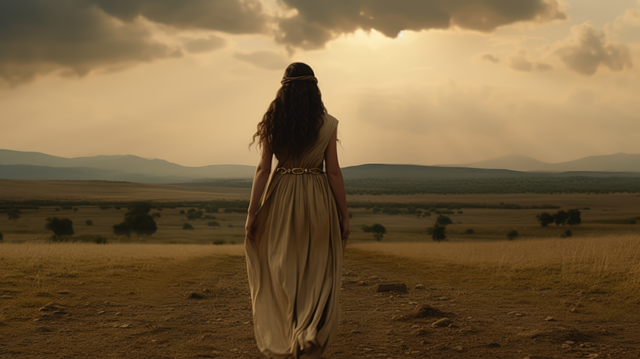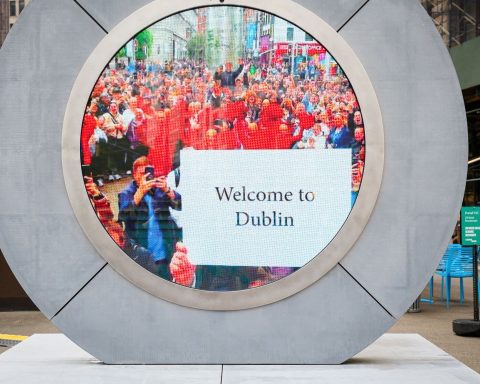[ad_1]


Myths have shaped human society by providing frameworks for understanding the world and our place within it. As enduring vessels of wisdom and adventure, they have been retold across millennia, each time reflecting the ethos of the era. In modern literature, a creative resurgence is underway, with authors reinterpreting and rejuvenating these ancient tales for a new generation. This exploration of mythology grants audiences an opportunity to assess traditional narratives in the light of current values and sensibilities, allowing age-old tales to transform and adapt to modern worldviews.
The Enduring Allure of Mythology in Modern Times
Mythology has never lost its charm over human imagination. In an age defined by science and technology, the ancient gods, heroes, and monsters still captivate the minds of people across the globe. It is this fascination with the mythic that prompts contemporary authors to revisit these tales, seeking to unravel the timeless allure hidden within their depths.
These stories resonate with us today because they continue to explore universal human concerns: love, power, mortality, and morality. They provide a mystical escape from the mundane while at the same time allowing us to confront the very core of what it means to be human.
Breathing New Life into Classic Myths: A Modern Twist
The legendary narratives we know so well are being revived with a modern twist. Authors are rewriting them with contemporary language, settings, and sensibilities. For example, Circe by Madeline Miller gives a voice to a relatively minor character in the Odyssey, transforming her into a complex protagonist with her own story to tell.
These modern adaptations are engaging new audiences, who relate to the ancient myths not as distant and antiquated texts, but as living stories evolving with time.
Reimagining Heroes and Gods: Gender and Diversity in Retellings
Inclusivity is a hallmark of contemporary society, and modern retellings of myth often reflect this. Gender swaps and diverse character backgrounds are weaving their way into the fabric of age-old narratives, granting new perspectives and depth.
A reinterpretation that exemplifies this trend is The Silence of the Girls by Pat Barker, which tells the story of the Trojan War from the perspective of Briseis, a narrative traditionally dominated by male heroes. By repositioning the focus, these retellings underscore the often-overlooked experiences and contributions of women and minorities in mythology.
The Role of Historical Context in Contemporary Myth Adaptations
Acknowledging the historical context is crucial for contemporary myth adaptations. Whether strictly adhering to historical details or fluidly reimagining them, authors can enhance the richness and education value of these stories, providing a discourse on how society has changed — or how it hasn’t.
Books like The Song of Achilles also by Madeline Miller, while faithful to the Homeric tradition, imbue the narrative with contemporary relevance by exploring timeless themes of love and honor in war.
Challenging Conventions: Subverting Traditional Narratives
Modern myth retellings don’t shy away from challenging conventions. They often contest the original tales’ perspectives, making room for alternative interpretations and criticisms. This subversion is possible through the retelling of stories from the viewpoints of different, sometimes marginalized characters, or by highlighting the moral complexities that traditional narratives gloss over.
Neil Gaiman’s Norse Mythology, while a straightforward retelling, manages to capture the complexities of its characters, and their stories, making them accessible to modern readers without sacrificing the tales’ intrinsic nature.
Mythology as a Mirror: Reflecting Contemporary Issues
Mythology acts as a mirror, reflecting the issues of the day. The ancient tales, when adapted, offer commentary on contemporary social and political matters. They draw parallels between the struggles of the past and the present, providing a platform for dialogue on topics such as leadership, justice, and human rights.
This reflective quality ensures that myths, through their retellings, persist as a significant medium for questioning and understanding modern society.
The Fusion of Genres: Myth Meets Sci-Fi and Fantasy
Colliding with genres like sci-fi and fantasy, mythological retellings create new and exciting landscapes for exploration. The combination allows for a high degree of creativity, producing narratives that are both familiar and startlingly innovative.
Rick Riordan’s “Percy Jackson & the Olympians” series is a notable example, blending Greek mythology with modern fantasy adventure, enticing young readers to dive into these ancient worlds through the lens of contemporary storytelling.
The Never-Ending Story: Why Ancient Myths Still Resonate Today
At their core, myths are about the human experience. They address the questions that have intrigued us for centuries. It is this search for meaning that makes them timeless, ensuring that as long as there are storytellers, the ancient myths will continue to be retold.
As culture evolves, so do the tales we tell. They are a testament to our ability to preserve our heritage while adapting it to echo our current understanding of the world. These contemporary retellings remind us that stories, much like humanity, are in a state of perpetual growth, adding new chapters to the never-ending story of our existence.
[ad_2]







